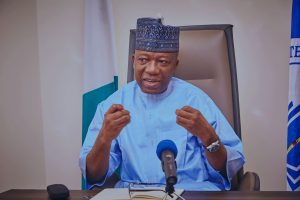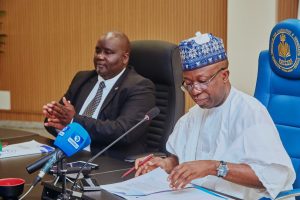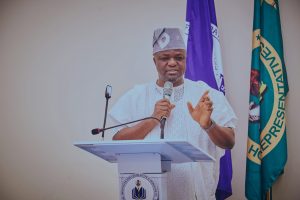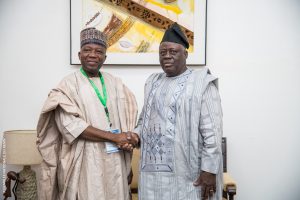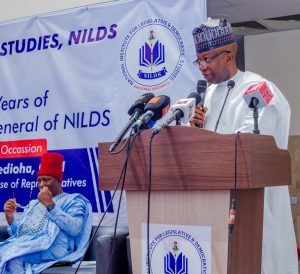At the end of its two-day retreat which ended on Saturday at Ikot-Ekpene, Akwa Ibom State, the Senate has unfolded a comprehensive strategy to prevent corruption in the various ministries, departments and agencies (MDAs) of the federal government.
The strategies were contained in the communique issued at the end of the retreat, which was organised by the National Institute for Legislative and Democratic Studies (NILDS)
The Red chamber recommended the streamlining of revenue collection in the Federal Inland Revenue Service (FIRS). It posited that FIRS was the single federal agency saddled with the responsibility of collecting revenues.
The strategies according to the Senate if properly implemented would boost the nations revenues to fund its annual budgets.
Part of the communique read, “The situation where many agencies of government are involved in collecting taxes and new laws continue to make it the responsibility of these agencies to collect taxes should be halted, through a legislative resolution. “Bills on taxes should be presented as Executive Bills and not as private member Bills.
“There is a need to review the tax waiver policy to ensure it is aligned with the revenue mobilization drive of the government by making the waiver process more transparent and accountable. “To address exchange rate management issues, challenges of inflation, address poverty, and create jobs, there is a need to consider and approve the Emergency Economic Intervention Bill from the Executive as a proposed legislation from the Presidential Committee on Fiscal Policy and Tax Reforms.”
The Senate added: “There is the need to establish clear and transparent guidelines for revenue retention. The government should establish clear and transparent guidelines for the amount of revenue that revenue-generating institutions are allowed to retain. “These guidelines should be based on objective criteria, such as the institution’s verified operating costs and investment needs by the relevant authorities and committees of the National Assembly. “There is the need to enhance public spending efficiency, by tackling corruption in government spending in order to provide commensurate fiscal exchange to citizens and boost tax morale.
“There is also the need for effective management of resources by adopting technology in expenditure management, driving adherence to fiscal rules and benchmarks, establishing a national fiscal risk framework for revenue, debt and expenditure.
“Nigerian Government should consolidate revenue collection into a single agency like the Federal Inland Revenue Service (FIRS). “This would simplify the tax system, reduce duplication of efforts and make it easier for taxpayers to comply with the law.
“The National Assembly should work with the Executive to review the National Development Plan to integrate the eight -point Agenda of the President.
“It should also, consider legislating aspects of the Agenda for holistic implementation. There is a need to consider relevant constitutional amendments.“This will pave the way for a five-year development plan to cater for projects and ensure continuity while limiting abandoned projects.
“There is the urgent need to enforce consequences for violations of any provisions of the law regarding monetary and fiscal matters.
“This will require amendments to the relevant laws to ensure effective oversight and enforcement of the consequences, as the case may be.
“There is the need for legislation that clearly defines the taxing rights of the three levels of government.
“There is also the need for legislative intervention to promote the optimisation of revenue from non-oil sources, especially in the solid mineral sector.”
Credit: Sunday Aborisade in Abuja



